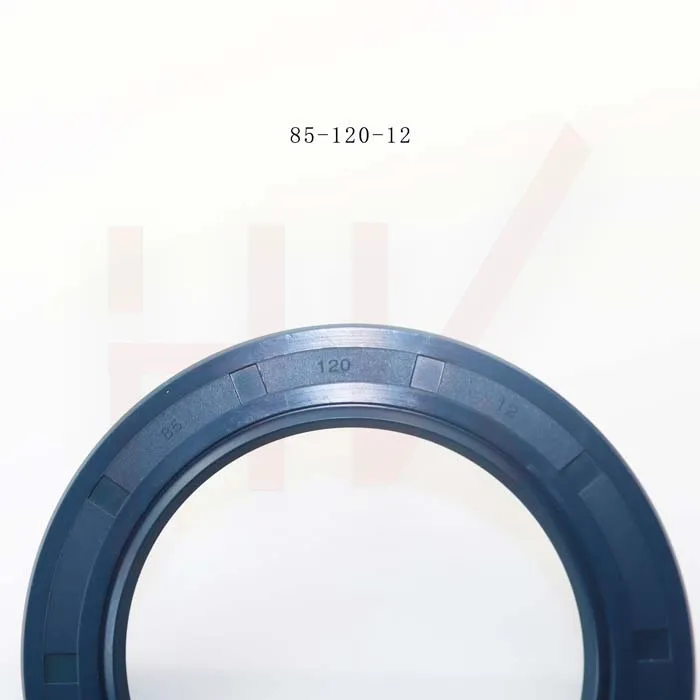Dec . 20, 2024 06:15 Back to list
Understanding Hub Axle Seal Functions and Maintenance for Optimal Performance
Understanding Hub Axle Seals Importance, Types, and Maintenance
When it comes to the optimal performance of vehicles, the importance of a well-functioning hub axle seal cannot be overstated. This critical component plays a pivotal role in the overall integrity of the vehicle's axle system, preventing leaks and ensuring that critical fluids remain contained within the assembly. In this article, we will explore the significance of hub axle seals, the various types available, and essential maintenance tips to extend their lifespan.
What is a Hub Axle Seal?
A hub axle seal is a mechanical seal that is typically located at the interface between the axle and the wheel hub. Its primary function is to prevent the leakage of lubricating fluids, such as differential oil or grease, which are necessary for the smooth operation of the axle bearings. By maintaining a tight seal, it protects the internal components from dirt, moisture, and other contaminants that can lead to significant damage and costly repairs.
Importance of Hub Axle Seals
1. Prevention of Fluid Leakage One of the primary roles of hub axle seals is to contain lubricants within the axle and wheel hub. Any leakage can result in inadequate lubrication, which may lead to increased friction, overheating, and ultimately, component failure.
2. Protection Against Contaminants Hub axle seals act as barriers against environmental contaminants like dirt and water. By keeping these harmful substances out, they help maintain the cleanliness of the lubricants within the assembly, thereby prolonging the life of the bearings and other critical components.
3. Enhanced Performance Properly functioning hub axle seals contribute to the overall efficiency and performance of the vehicle. When seals are in good condition, the drive system operates smoothly, leading to better handling, stability, and fuel economy.
Types of Hub Axle Seals
There are several types of hub axle seals available on the market, accommodating various vehicle designs and applications
1. Rubber Seals The most common type, rubber seals provide a flexible barrier capable of withstanding a range of temperatures and pressures. They are suitable for most passenger vehicles and light trucks.
2. Composite Seals These seals combine different materials to offer enhanced durability and resistance to extreme conditions. They may be utilized in heavy-duty applications, such as trucks and construction machinery.
hub axle seal

3. Metallic Seals Often found in high-performance or specialized vehicles, metallic seals offer exceptional resistance to wear and high-pressure situations. However, they may require precise installation to ensure proper sealing.
4. Floating Seals These are designed to compensate for slight misalignments within the axle assembly. Floating seals can be advantageous in applications where the axle may not be perfectly aligned, minimizing the risk of leakage.
Maintenance Tips
To ensure the longevity and performance of hub axle seals, regular maintenance and inspection are essential
1. Regular Inspections Periodically check for signs of oil or grease leakage around the seals. If you notice any fluid accumulation, it may indicate a failed or damaged seal that needs replacement.
2. Keep the Area Clean Regularly cleaning around the wheel hubs can prevent dirt and grime buildup. This practice reduces the likelihood of contaminants infiltrating the sealing surface, prolonging seal life.
3. Monitor Fluid Levels Keeping an eye on differential and wheel bearing lubricant levels is crucial. If you notice levels dropping, it could be a sign of a seal failure that requires immediate attention.
4. Use Quality Parts When replacing seals, always opt for high-quality or OEM (original equipment manufacturer) parts. Cheap or poorly manufactured seals may not provide the necessary protection and can lead to premature failure.
5. Professional Installation If you're unsure about installing hub axle seals yourself, consider seeking professional help. An experienced mechanic can ensure that seals are fitted correctly, which is essential for proper functioning and longevity.
Conclusion
In conclusion, hub axle seals are essential components that significantly influence vehicle performance and longevity. By understanding their importance, types, and maintenance practices, vehicle owners can make informed decisions and take proactive measures to protect their investments. A little attention to these small yet mighty seals can lead to substantial benefits in ensuring the smooth operation of your vehicle's axle system.
-
TCN Oil Seal Metal Ring Reinforcement for Heavy Machinery
NewsJul.25,2025
-
Rotary Lip Seal Spring-Loaded Design for High-Speed Applications
NewsJul.25,2025
-
Hydraulic Cylinder Seals Polyurethane Material for High-Impact Jobs
NewsJul.25,2025
-
High Pressure Oil Seal Polyurethane Coating Wear Resistance
NewsJul.25,2025
-
Dust Proof Seal Double Lip Design for Construction Equipment
NewsJul.25,2025
-
Hub Seal Polyurethane Wear Resistance in Agricultural Vehicles
NewsJul.25,2025
-
The Trans-formative Journey of Wheel Hub Oil Seals
NewsJun.06,2025
Products categories
















